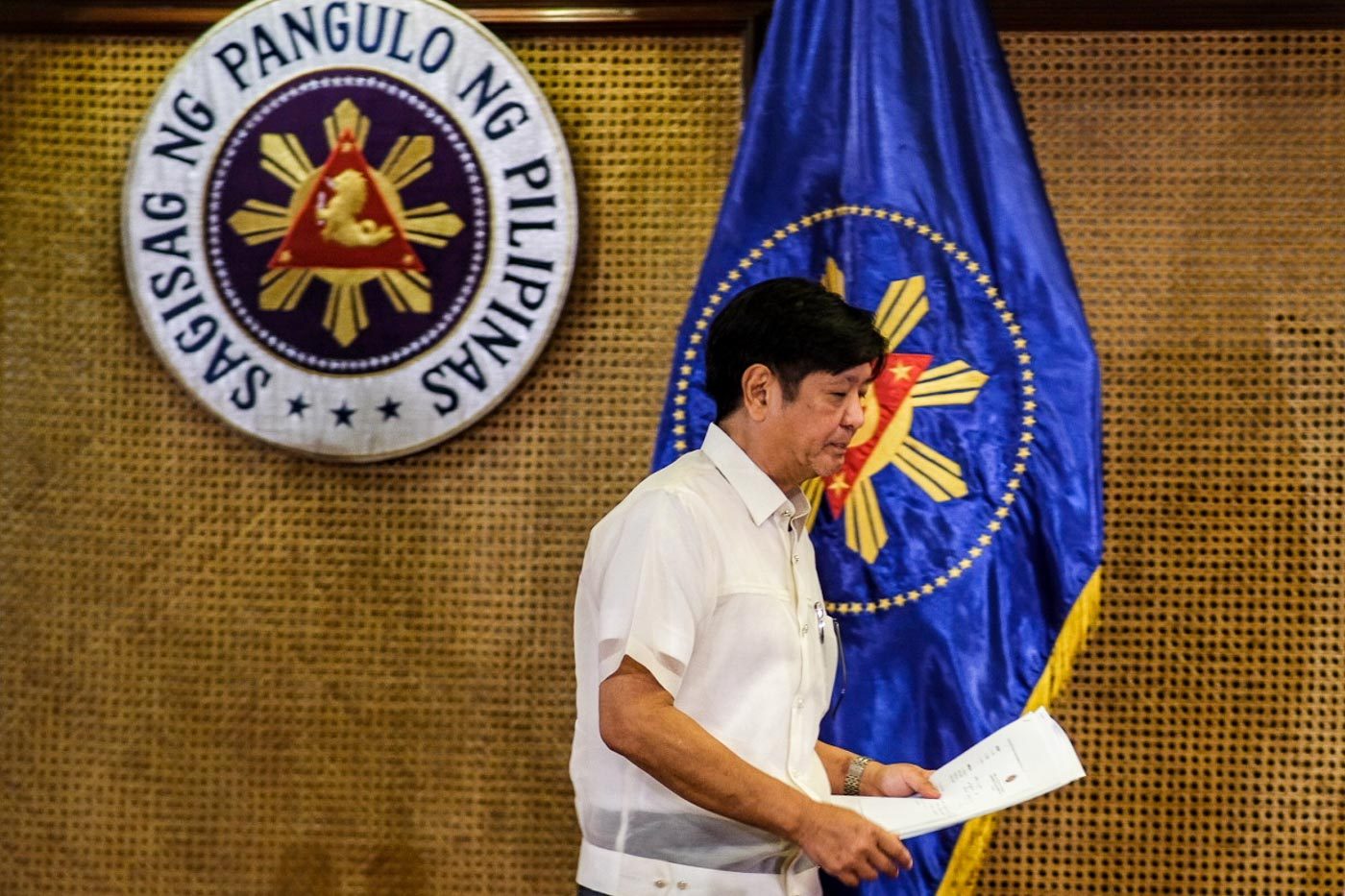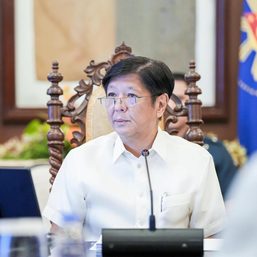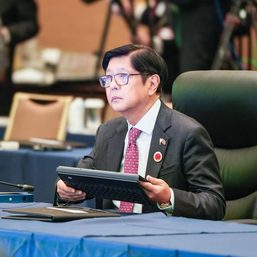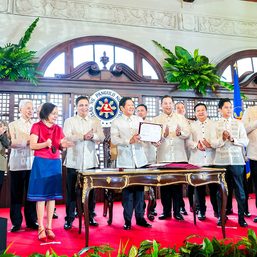SUMMARY
This is AI generated summarization, which may have errors. For context, always refer to the full article.

MANILA, Philippines – The Senate on Thursday, November 10, approved the P8.9-billion proposed budget of the Office of the President (OP) for 2023, which includes P4.5 billion in confidential and intelligence funds. This will be President Ferdinand Marcos Jr.’s first full annual budget.
Of the P4.5 billion, P2.25 billion is in confidential funds, while the other P2.25 billion is allotted to intelligence. The combined amount comprises around half of the entire OP budget.
Marcos had asked for the same amount in confidential and intelligence funds as his predecessor, Rodrigo Duterte.
Before the OP budget was approved, Senate Minority Leader Aquilino “Koko” Pimentel III asked why the OP needed this much in confidential and intelligence funds, as there are existing intelligence agencies and units in the government which can serve the intelligence needs of the OP or the President himself. (READ: Pimentel attempts to strike out confidential funds of DepEd, OVP, OSG)
Senator Juan Edgardo “Sonny” Angara, sponsor of the 2023 General Appropriations Bill (GAB), defended the need for the President to have his own share in intelligence funds as “he is not just a user, but a gatherer of information” as well.
“There may be individuals who are not willing to give [intelligence] to a large organization and expose themselves. But if they know that that information is going [directly] to the President, then that would encourage them to give that information,” said Angara.
Pimentel said intelligence agencies should be sharing information. Creating new layers of intelligence gathering causes repetition of expenses, he said. But Angara answered that security agencies had a tendency to not trust each other.
“The sad truth, your honor, is that many of our security agencies operate in silos. And they do not share intelligence. That’s the fact. I’ve seen it in my 18 years [as a legislator]. That’s a fact that we should change going forward, and I agree with you that there should be a sharing of information. But unfortunately…the reality on the ground is some of our security agencies don’t trust each other,” said Angara, citing the example of the Mamasapano encounter in 2015.
Pimentel noted that one usual objection against confidential and intelligence funds is the lack of transparency. He asked if it would be possible to receive periodic “accomplishment reports” instead of liquidation reports, so as to not reveal the ultimate recipient of the funds.
The accomplishment reports could include information like solving a certain murder case with the use of the funds, or preventing a bombing in a certain city. Angara said it was a “good idea.”
“For the confidential funds, the agencies are required to submit reports to the President, the two chambers of Congress, and the department secretaries. So there is that measure of accountability, it’s not totally opaque as some people would imagine, your honor – there’s an element of transparency and accountability there,” said Angara in a mix of English and Filipino.
“As for the intelligence funds, there is a quarterly accomplishment report submitted to the President,” he added.
Angara said there was “no problem” in asking the executive branch of government if Congress could have access to the intelligence fund accomplishment reports as well, citing the good relations the two branches of government currently have.
The Commission on Audit defines confidential expenses as outlays on surveillance activities of civilian government agencies. Intelligence expenses, on the other hand, are disbursements related to intelligence information gathering activities of uniformed, military personnel and intelligence practitioners.
Marcos’ proposed and Duterte’s previously approved confidential and intelligence budget have a vast difference from the request of their predecessor, the late Benigno Aquino III, who asked for only P250 million each for the OP’s confidential and intelligence funds. – Rappler.com
Add a comment
How does this make you feel?
![[Newsstand] What’s next for VP Sara: Go Macapagal or go Arroyo?](https://www.rappler.com/tachyon/2024/06/tl-vp-sara-duterte-go-macapagal-go-arroyo-1.jpg?resize=257%2C257&crop=412px%2C0px%2C1080px%2C1080px)




![[OPINION] Unpaid care work by women is a public concern](https://www.rappler.com/tachyon/2024/07/20240725-unpaid-care-work-public-concern.jpg?resize=257%2C257&crop_strategy=attention)








![[WATCH] Bamban POGO scandal: There’s a bigger fish than Alice Guo](https://www.rappler.com/tachyon/2024/07/inside-track-tcard-bamban-pogo.jpg?resize=257%2C257&crop=435px%2C0px%2C1080px%2C1080px)
There are no comments yet. Add your comment to start the conversation.